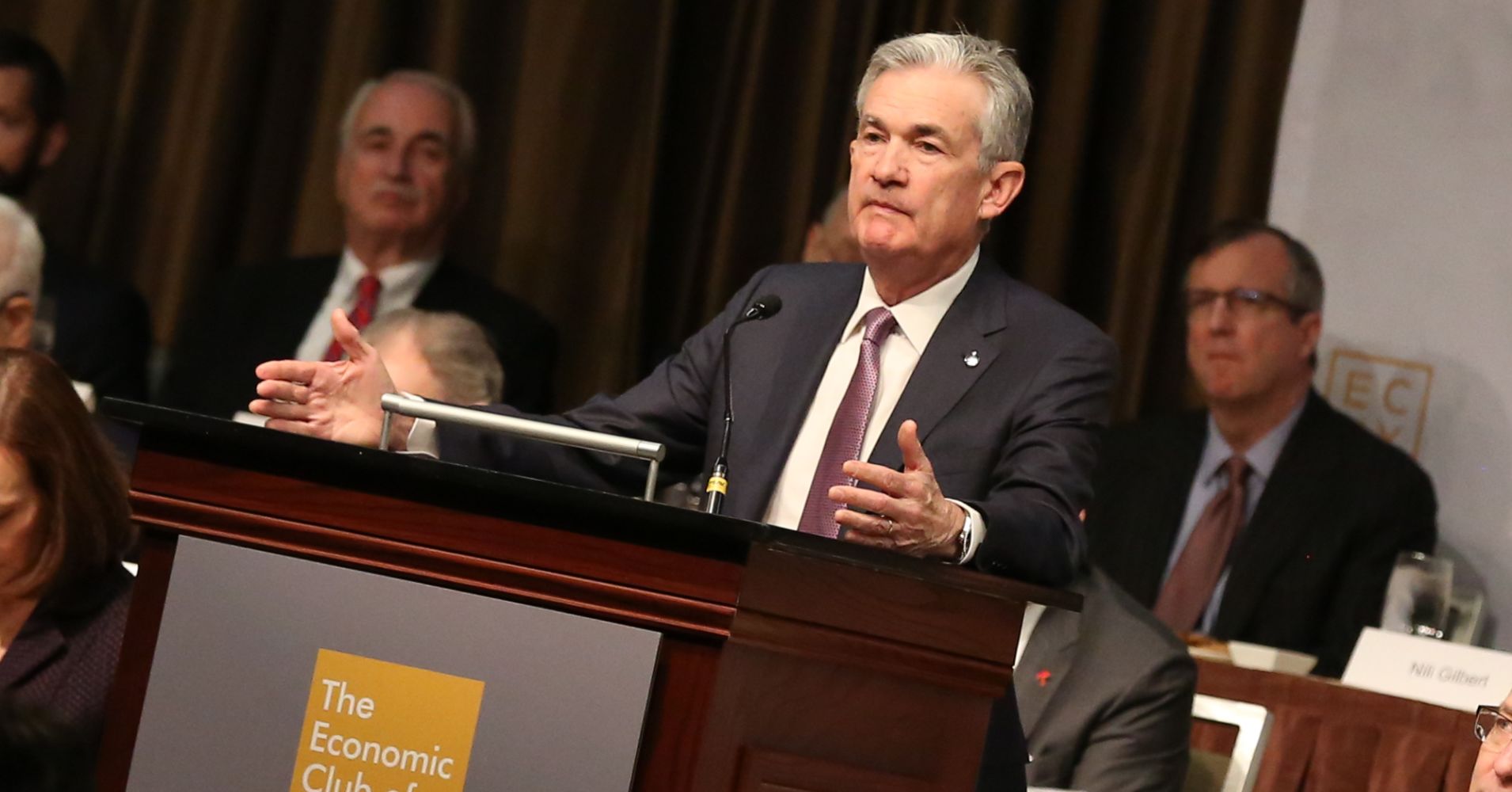Federal Reserve Chairman Jerome Powell, often criticized for increasing interest rates by President Donald Trump, has been effective at the helm of the nation’s central bank, conservative economist Art Laffer told CNBC on Wednesday.
“I’m a huge fan of Powell’s,” said Laffer, formerly an economic advisor to presidents Trump and Ronald Reagan. “I think he’s done a great job in normalizing interest rates.”
Trump, who actually appointed Powell as Fed chief, has repeatedly railed against hiking rates too aggressively, blaming Powell most recently in a Washington Post interview last week for stock market declines and GM’s planned plant closures and layoffs.
The Fed later this month is expected to raise rates for the fourth time this year. But the path next year is up for debate. After its September rate hike, the Fed projected three rate increases into 2019. The current target range for the central bank’s benchmark federal funds rate, which banks charge each other for overnight lending, stands at 2 percent to 2.25 percent.
Trump’s Post interview on Nov. 27 came one day before Powell appeared to walk back his comments from Oct. 3 that rates were a “long way” from so-called neutral, which for October led to the worst monthly stock market losses in about seven years.
Powell last Wednesday said that rates are “just below” neutral, perhaps indicating that concerns about much higher rates may no longer be warranted. The market then rallied three out of the next four sessions.
On Monday, which saw stocks on a two-session winning streak, Treasury Secretary Steven Mnuchin told CNBC that the president was pleased with Powell’s latest speech.
However, on Tuesday, the Dow Jones Industrial Average tanked nearly 800 points, or 3 percent. It was the biggest decline since October’s rout as investors worried about a bond-market phenomenon that’s historically signaled a possible economic slowdown. Lingering worries around U.S.-China trade were also to blame. The Dow and S&P 500 were able to stay out of a correction. But Tuesday’s decline sent the Nasdaq back into correction territory.
Co-author of the book, “Trumponomics: Inside the America First Plan to Revive Our Economy,” Laffer said he’s “very optimistic” about the economy, describing the Trump tax cuts as “kicking in beautifully.” The Laffer Curve, named after the economist, is a theory that basically argues that increasing tax rates beyond a certain point becomes counter-productive for raising tax revenue — and that when taxes are too high, tax revenues actually sink.
Laffer said he hopes the administration tackles runway government spending as its next agenda item. “If it is, I don’t see any reason for a recession. I think we’re going to continue on a long prosperous path with the sky’s the limit.”
On CNBC Tuesday, Commerce Secretary Wilbur Ross said the U.S. economy is in good shape. He blamed the media for stoking worries about a slowdown.
However, Laffer said he’s concerned about the uncertainty surrounding U.S. trade relations with China. “Watching all this play out in real time is terrifying to me.”
Over the weekend, Trump and Chinese President Xi Jinping reached a truce in their bilateral trade war, agreeing to a 90-day period of no new tariffs on each other’s goods as talks continue.
Mnuchin told CNBC Monday he’s hopeful the Trump-Xi trade cease-fire can be turned into a “real agreement” to address what the president feels are unfair trade practices by the Chinese. Ross said on CNBC Tuesday that Trump got “very good” assurances from Xi on trade.
(The New York Stock Exchange and the Nasdaq were closed Wednesday for the funeral of George H.W. Bush, the nation’s 41st president. They reopen Thursday on a normal schedule. U.S. stocks futures, which closed at 9:30 a.m. ET, reopen Wednesday evening at 6 p.m. ET.)


 Signal2forex.com - Best Forex robots and signals
Signal2forex.com - Best Forex robots and signals




